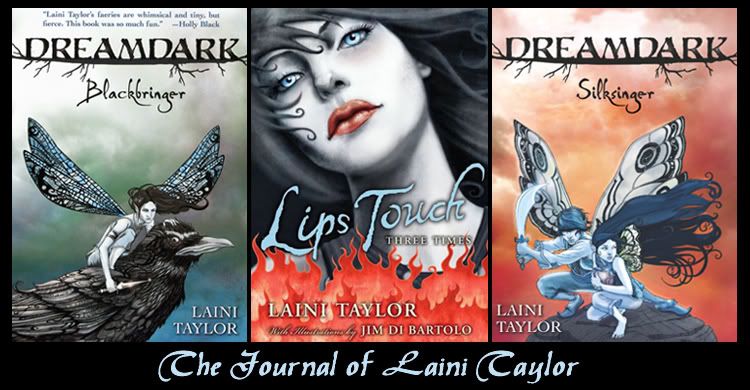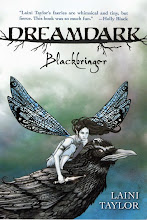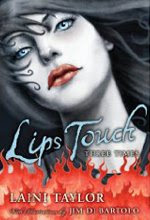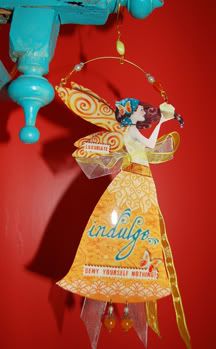Well, after all the excitement of last weekend, I'm finally [sort of] settled back down into a work routine. Yesterday, thanks to Freedom (halleluja!), I finished a chapter and another 1000 words of the next chapter. I set Freedom to two hours, twice, and silenced the siren song of the internet.
I [heart] FREEDOM.
In just a minute, as soon as I publish this, I will do it again, and hopefully manage another 1000 words before I go out to do my "chocolate shopping" today. Easter's in a few days, after all. I love Easter baskets. They're the Christmas stockings of springtime. In my family that means not only chocolate but fun little presents and crafty things.
Also, on the subject of chocolate, stayed tuned for a very special CHOCOLATE BRIBE to be coming your way in the next few days.
Anyway, very much NOT on the subject of Easter or chocolate, last night I began some war research. You see, there is some war in my current book, and war, though fascinating to me, is not something I know about (and thank you for that). While I am inventing a fictional war, I feel I need a real war to model it after, so I've chosen one about which I know especially little, and am beginning to read about it. That is: the so-called Hundred Years War. This is what I knew about it:
1) It was between England and France in the late Middle Ages
2) Joan of Arc had something to do with it
3) The Battle of Agincourt, made famous by Shakespeare's Henry V ("We few, we happy few, we band of brothers . . .") was part of it
That's all. Now, thanks to my good friends Wikipedia and Youtube, I've dipped my toe into the Hundred Years War and learned some really interesting things about English long bows and the bloody end of the good old medieval cavalry charge of noble knights in full regalia. Did you know, for example, that the draw strength of a long bow was between 140-180 pounds? I take that to mean that that was the force required to pull back the string, the length of which was the height of the archer. Wow. Skeletons of English archers (who grew up training on the long bow) showed: twisted spines and extreme bone density through the shoulders.
The French, by contrast, had only Genoese mercenary crossbowmen, and the crossbow was heavy, hard to reload, and lacked the range of the long bow. Also, English archers could easily unstring their bows and curl the string up in their hats to keep it dry in the rain or river crossings, whereas the crossbows were hard to unstring and restring. At one battle (Crecy? Calais? I can't remember.) the crossbow strings got wet and couldn't fire far enough to reach the English, which so disgusted the French commanders that they ordered their infantry to kill their own contracted Genoese mercenaries, who, finding themselves set upon from both sides, started firing back at their own employers. Oy. War.
Anyway, my book is set neither in England nor France, nor even during the Middle Ages, but the kinds of details of why and how, tactics, betrayals, truces, the texture of those years, that's what I'm after. I've just started reading a book called The Archer's Tale by the extremely prolific historical fiction writer Bernard Cornwell, and I have a YA book waiting next, called Dogboy, both set during the Hundred Years War. I'm early in my research and haven't gotten to Joan of Arc yet, but I'm curious to learn more about her.
While working on Spicy Little Curses Such As These (the second story in Lips Touch) I became fascinated with the British Raj -- the British era in India -- and read or perused many books, both history and fiction, on the subject. I don't know if this will be a new fascination, but it could be. I've long wished I could have taken more history classes in college, and have thought idly, "Maybe I'll audit some now," and of course have never gotten around to it. There are books, after all. And Youtube! Was impressed with this series on the Hundred Years War, which I assume is an amateur effort, but well done, providing a good starting point.
Anyway, Freedom is waiting for me to begin work. Have a great day!
Oh, here's Kenneth Branagh doing the famous St. Crispin's Day speech from Henry V, one of the all-time great battle speeches. If you watch, you can glimpse a 13-year-old Christian Bale in among the troops:
Whew. I'd forgotten how awesome the music was in this movie. As soon as I heard it I remembered it fully -- one of those movie scores that is the movie, the way the Stars Wars and The Mission scores are.
Friday, April 10, 2009
Subscribe to:
Post Comments (Atom)









16 comments:
Freedom sounds great. I think I might have to try it out myself to see if I can break my addiction to the internet and focus even more on my writing. :D I love how writing a story often sends me to learn so much more about things I normally would not be interested in at all. It's like discovering a hidden treasure!
We had to memorize that speech in school...
Speaking of weapons, I was just reading something about swords, and apparently they are light and easily wielded, so beware, should you have swords, of them being "clumsy" or "heavy."
Speaking of the Raj, have you ever read Kipling's book, Kim? I think you would like it.
It's a GOOD speech.
One of my favorite anecdotes about the 100 Years War, and about Agincourt in particular, in fact, is that it was in that battle that the English two-fingered gesture (the cousin of our middle-finger salute) was born.
The French, see, when they caught an English bowman as prisoner, would cut off their two first fingers, so they couldn't draw back a bowstring. And so the English, when facing a Frenchman across a field of battle, would proudly show off their first two fingers and gesture with them -- indicating how ready and able they were to put an arrow in them.
It gives a simple gesture a depth of meaning that I absolutely LOVE.
This suddenly makes me so happy I married a history major. My husband absolutely loves war stuff, and even though I find it kind of dry sometimes, he loves talking about it, so that could definitively be a plus in future novels.
Not that research is bad, or anything. Which reminds me, I still need to look up types of breads and "mystical" qualities of certain ingredients...
Hi Laini!
Thank you for your continued praise of Freedom. I really appreciate it and am glad the program helping you.
I've moved Freedom to a new website that is a little easier to remember - http://macfreedom.com. If you go to that site you'll see that I've included a testimonial and link to you. I hope you don't mind!
Thanks again for blogging Freedom!
Daphne beat me to the two-fingered comment!
I'm going to try out Freedom tonight. It's all downloaded and ready to be used.
I love the clip of Henry V, by the way. Not that I love war and the carnage that goes with it, but it is nice to see a King stand in the midst of it, kissing a leaf and speaking directly to his men. This was a time when the leadership knew exactly what he was sending his men into and would stand by them as they died. Back when the leaders were at much at risk as their captains (to borrow a French word). Nowadays, in battle, it's only the captains and below who are at risk. Sadly, the generals and kings (presidents) are safely tucked in their bunkers and their white houses.
No, I'm not bitter at all.
Oooh - that 2 finger comment is really cool - I love the secret history behind stuff like that!
And yeah, I always wish I had had some amazing history teacher - if so, I probably would have been a history major, rather than communications and education... I love taking stuff from history and reworking bits of it as fiction and fantasy!
Thanks for sharing such great process stuff,
Namaste,
Lee
Daphne, now that you remind me, I do recall that I've heard that story, though I couldn't have said that it originated during the Hundred Years War. Cool! It's the details like that that make things feel real.
And Amber, I totally agree with you. In one of these battles, the blind kind of Bohemia (I think; maybe Hungary? Can't recall) insisted on charging into battle, and was killed, but his bravery so impressed Edward the Black Prince that he took on the king's motto, I Serve.
And Fred, you're welcome, but seriously, thank YOU!
Maybe you could interview a University History Professor to learn more. Often they have stories floating around in their memory banks that never make it into any history textbook or course.
I once listened to two Community College History Professors talking to each other on a historical topic that showed how deep their knowledge is compared to what goes on in a classroom. I walked away with a much deeper respect for people who teach at the Community College level than I had before and never forgot it.
My husband has a longbow made by a local craftsman. Though it's not nearly as difficult to draw as the originals, I can't even pull it back an inch. Those archers must have had amazing shoulders.
History is marvelous. I love the snippets of information you share. Your blogs are fabulous.
One of the reasons I love being a writer is the continued acquisition of knowledge no one else knows.
Hmm. Joan of Arc.
I don't know much about her, except that Pope Benedict XV canonized her.
so can't you turn freedom off if you feel yourself craving some internet, because I'm not sure I'd have the discipline to keep it locked down?!
I would turn it on for 2 hours and then turn it off 30 minutes later - and then back on - and then off...
*sigh...
And I can't wait to hear about the chocolate!
Hi Katie! The great thing is: you can't turn it off once you've enabled it! That's key. You can only run out the clock. You can reboot your computer, but that's a hassle that doesn't tempt me to cheat. Still, I haven't set it for longer than two hours, because by the end I feel the need to check email or whatever (and no, there have not yet been any incredibly important messages awaiting me!)
Chocolate announcement coming soon . . .
The music for Henry V really is iconic, that haunting 'Non nobis, Domine' at the end.
Post a Comment